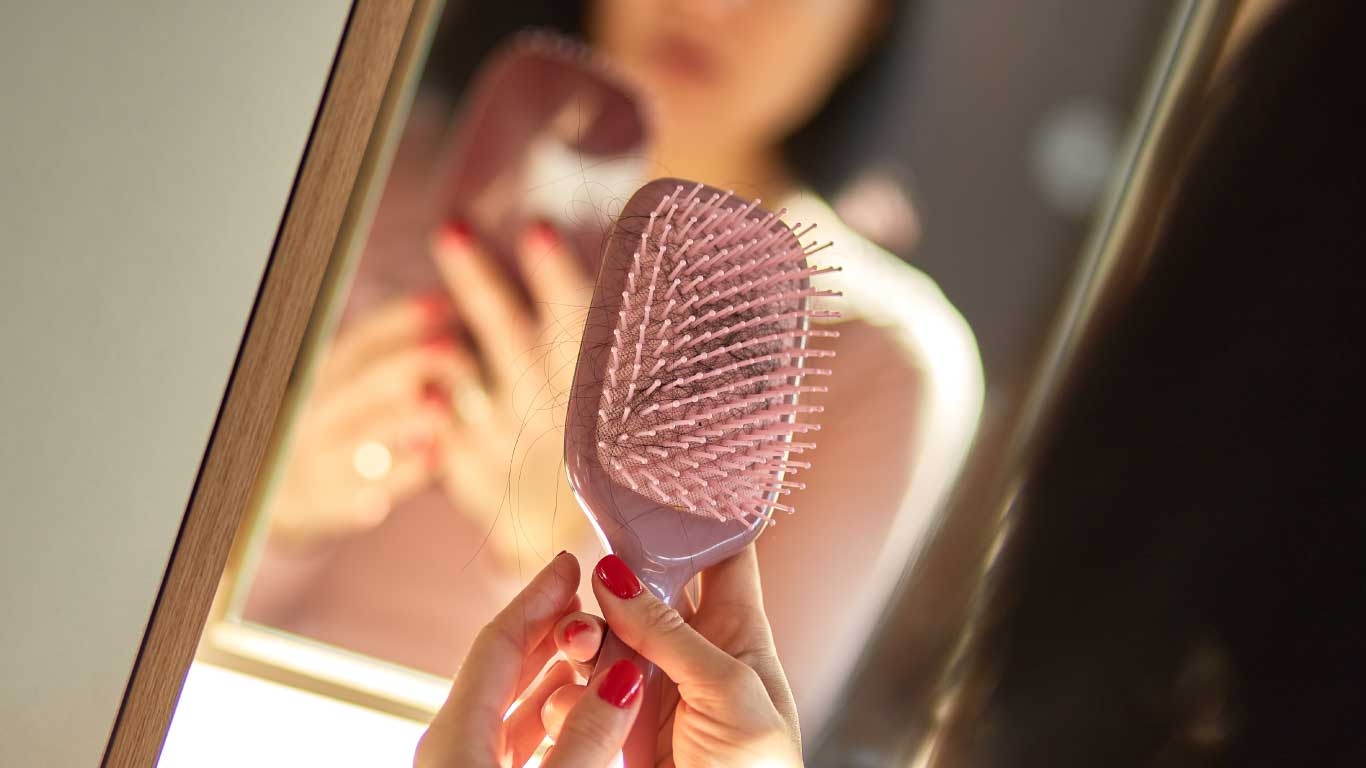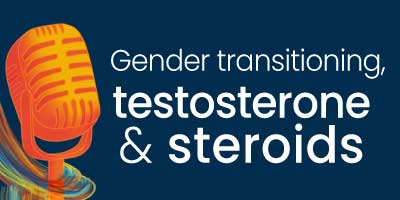Hairs To You Podcast: Hair loss after gender transitioning, testosterone and steroids
Posted by Superhairpieces on Aug 22, 2022
In the last recap of our first Hairs To You podcast episode, guest Nicole Budani discusses various topics in relation to hair loss such as the role testosterone, steroids and creatine play. She also dives deep into gender transitioning and why someone transitioning from female to male can lose their hair.
READ: Part 1 - Hairs To You Podcast: Alopecia, misconceptions and how to combat it
READ: Part 2 - Hairs To You Podcast: Rogaine, laser light therapy and PRP for hair loss
READ: Part 3 - Hairs To You Podcast: COVID, telogen effluvium and reasons for hair loss with women
READ: Part 4 - Hairs To You Podcast: Genetics, hair loss diseases and seeing a dermatologist
If you prefer, you can also listen to the full episode below:
Does creatine cause hair loss?
So to tell you the truth, I have not seen that creatine specifically can cause hair loss. Testosterone, which, you know, a lot of people are mistaken when they talk about bodybuilding and working out. So, steroids definitely can play a part in hair loss. Creatine basically helps with muscle building, but specifically it helps with muscle healing. And with muscle healing, it's not necessarily doing too much to testosterone itself. Truthfully, I haven't really seen any correlation with creatine use and hair loss. Because creatine is in most protein shakes and things like that. And just because you're at the gym working out, trying to get big, doesn't necessarily mean that you're going to lose hair.

Does increased testosterone trigger hair loss?
It could. It could because the reason for hair loss is a hormone called DHT. Dihydrotestosterone — it's a byproduct of testosterone. So if you have a lot of testosterone, you're probably creating a lot more DHT. Now, is that like a hundred percent? Like you have high testosterone, you have DHT — not necessarily. And some people produce more DHT and that's why they lose hair and you can get blood work to see how much DHT you have in your system. And ironically, one of the medications which women would use, for example to decrease testosterone for a woman so that they don't produce as much DHT, [is prostate medication] because DHT blockers tend to be more prostate medications.
READ: Should you opt for finasteride if you're dealing with hair loss?
And it's kind of weird for women to be using prostate medications, though they do. But you usually see something like spironolactone used for a woman more often than not, but again, with all of these kinds of blockers, there's a lot of side effects. And again, you should be talking to a doctor about it specifically.
One of the main side effects of hair loss prescription medicine include decreased sex drive and breast cancer for men. Is that true?
Yeah, sexual dysfunction. Actually a really big one, even more than the breast cancer one, is depression. And that's a big one. Like the same level as sexual dysfunction and yes, they can cause each other as well. But yeah, that's a really big one for a lot of, especially young men. And to tell you the truth, like this is my own personal feeling on it, is that I'm not a huge fan of DHT blockers for young men, like under the age of 30. And you should definitely not be trying this if you're trying to procreate.
Do DHT blockers decrease testosterone?
No, it's just DHT, it's blocking DHT. The only one that just decreases testosterone is spironolactone.

Why does a person who's transitioning from female to male lose their hair?
It's so fascinating. I'm just kind of learning a little bit more about this. But it's totally possible for a female pattern to become a male pattern and more aggressive because again, what they're doing is they're injecting testosterone. So again, back to this whole testosterone aspect of things, because they're injecting testosterone, now they have higher levels of testosterone and potentially higher levels of DHT. And now the genetic pattern is moving into more of a male pattern versus female pattern.
Now, just so everybody knows, the difference between a male pattern and a female pattern is a male pattern pretty well focuses in on the top. I always call it the horseshoe; the men keep the sides and the back of their hair, and then the top is like free game. Women, on the other hand, can lose hair anywhere on their heads. Anywhere. The sides and the back included. If a woman who has a sensitive area all over her head transitions to become a male, then the area on the top, which is still sensitive, I guess, just because of the higher levels, they have more of a chance of losing their hair. And women don't tend to go fully bald and I think this is where it really kind of falls into things is that with women, because it's so diffuse, the hair is thinning out, miniaturizing, you don't necessarily have a huge amount of dead follicles. You can, for sure. And us women, we like having a lot of hair. But when you start transitioning, I think that the testosterone and higher levels of DHT is allowing for more of a chance for those follicles to go full death. So you start to have shiny baldness in those areas.
If there's no genetic balding in the family, there's no guarantee that if you go from female to male, that you're going to lose your hair?
No.
-----If you enjoyed reading, stick around for our next podcast episode and make sure to follow Hairs To You on whichever streaming platform you prefer most!
---------------------------------
Interested in learning more about getting started with hair systems? Browse through our website at www.superhairpieces.com (US & International) or superhairpieces.ca (CAN)
Don’t forget to tag us at @Superhairpieces and #Superhairpieces on your social media channels to get a shoutout! And make sure to like us on Facebook, follow on Instagram and subscribe to our YouTube channel!
 Likes
Likes



 EUR
EUR







